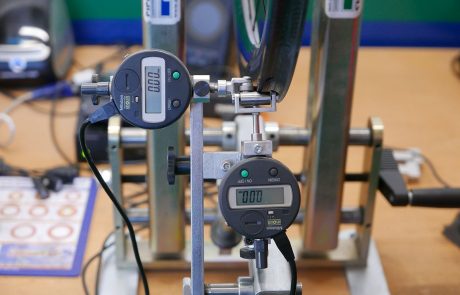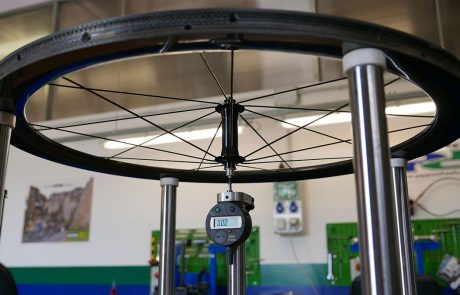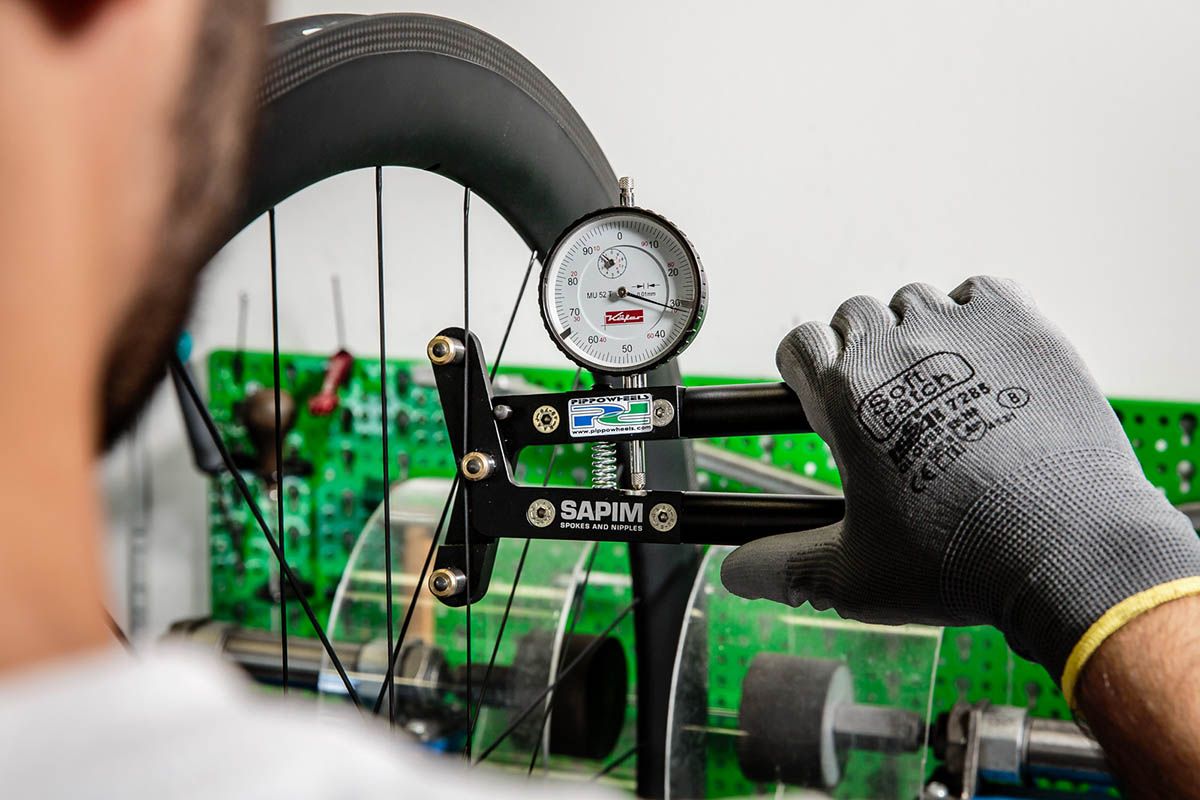TOLERANCES
Wheelbuilding specs Radial, axial and dish.
There are three determining values to ensure that the wheel meets the customer’s needs:
- The first is the radial runoff, essentially the “roundness of the wheel”.
Rims are made round, within the tolerance of the manufacturer, but if an uneven spoke tension is applied, the shape of the wheel will be easily changed.
Radial tolerance: +/- 0.15mm;
- The second value is the axial runoff: this is the lateral deviation of the rim when the wheel is turned.
Axial tolerance: +/- 0.10mm;
- The third is the dish: the rim must always be centered on the mid plane of the frame/fork.
Dish tolerance: +/- 0.10mm.
To control the various parameters we use custom-built supports with professional tools such as Mitutoyo gauges.
On the rear wheels, due to the sprockets, there will probably be an offset so that the spokes on the non-drive side will be longer than those on the drive side. As a result, the tensions will be different: generally the tension on the drive side could be substantially higher than that of the non drive side.
On poorly tensioned wheels this may result in spokes losing tension over time, which can also happen on front wheels with disc brakes.
To counteract the loosening of nipples, some manufacturers offer rims with offset drilling.
Tension of the spokes
A correctly tensioned wheel will offer a long service life without any problems.
Wheel manufacturers usually specify a maximum recommended spoke tension. Typically this could be 120 Kgf or 1200N.
If the tension has significant variations from one spoke to the next (on the rear wheels there is a difference between DS and NDS) the nipples can unscrew and the wheel will go visibly out of true, particularly with rim brake.
To avoid this, we make sure the tensions are even, by using a dedicated gauge and following the specifications indicated by the manufacturer; spoke tension is measured using Sapim, DT Swiss and Hozan tools.
We can also use a threadlock (Loctite) to prevent nipples from unscrewing.



